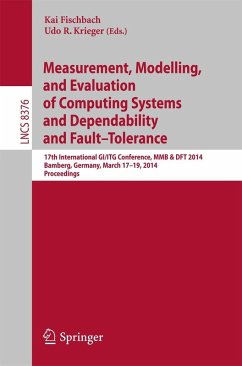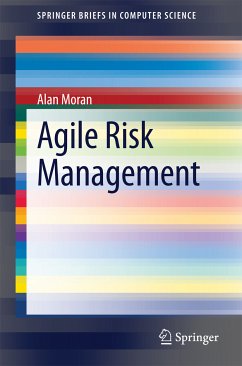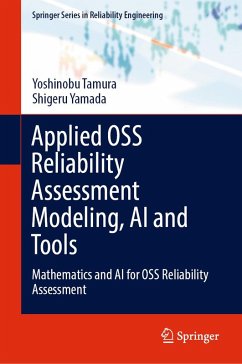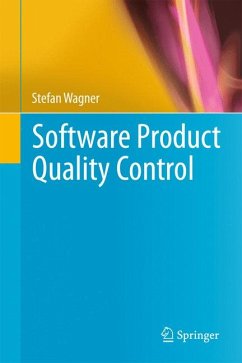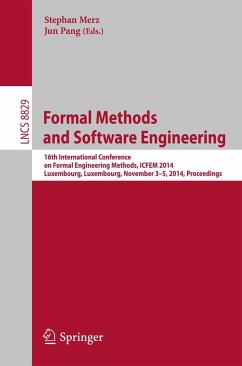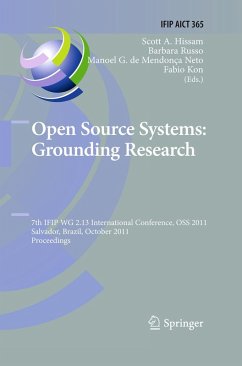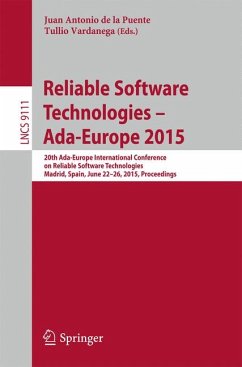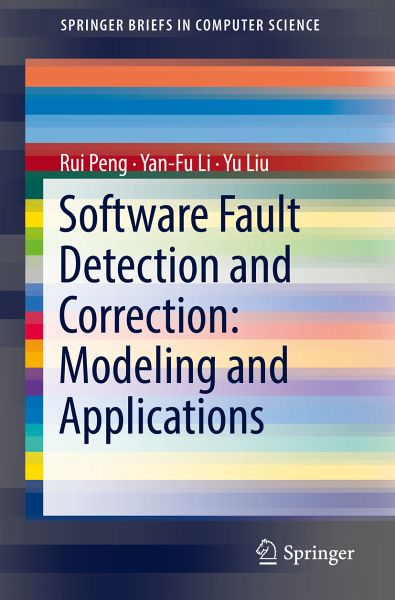
Software Fault Detection and Correction: Modeling and Applications (eBook, PDF)
Versandkostenfrei!
Sofort per Download lieferbar
40,95 €
inkl. MwSt.
Weitere Ausgaben:

PAYBACK Punkte
20 °P sammeln!
This book focuses on software fault detection and correction processes, presenting 5 different paired models introduced over the last decade and discussing their applications, in particular to determining software release time.The first work incorporates the testing effort function and the fault introduction process into the paired fault detection and fault correction models. The second work incorporates fault dependency, while the third adopts a Markov approach for studying fault detection and correction processes. The fourth work considers the multi-release property of various software, and ...
This book focuses on software fault detection and correction processes, presenting 5 different paired models introduced over the last decade and discussing their applications, in particular to determining software release time.
The first work incorporates the testing effort function and the fault introduction process into the paired fault detection and fault correction models. The second work incorporates fault dependency, while the third adopts a Markov approach for studying fault detection and correction processes. The fourth work considers the multi-release property of various software, and models fault detection and correction processes. The last work classifies faults into four types and models the fault-detection and correction processes.
Enabling readers to familiarize themselves with how software reliability can be modeled when different factors need to be considered, and how the approaches can be used to analyze other systems, the book is important referenceguide for researchers in the field of software reliability engineering and practitioners working on software projects. To gain the most from the book, readers should have a firm grasp of the fundamentals of the stochastic process.
The first work incorporates the testing effort function and the fault introduction process into the paired fault detection and fault correction models. The second work incorporates fault dependency, while the third adopts a Markov approach for studying fault detection and correction processes. The fourth work considers the multi-release property of various software, and models fault detection and correction processes. The last work classifies faults into four types and models the fault-detection and correction processes.
Enabling readers to familiarize themselves with how software reliability can be modeled when different factors need to be considered, and how the approaches can be used to analyze other systems, the book is important referenceguide for researchers in the field of software reliability engineering and practitioners working on software projects. To gain the most from the book, readers should have a firm grasp of the fundamentals of the stochastic process.
Dieser Download kann aus rechtlichen Gründen nur mit Rechnungsadresse in A, B, BG, CY, CZ, D, DK, EW, E, FIN, F, GR, HR, H, IRL, I, LT, L, LR, M, NL, PL, P, R, S, SLO, SK ausgeliefert werden.





